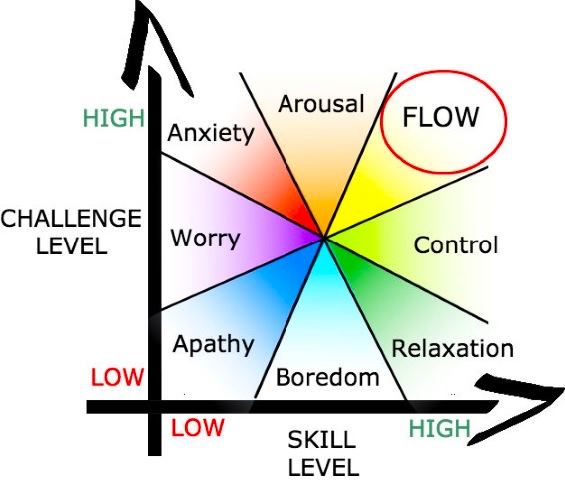Fear is such an ugly critter isn’t it? We’re afraid of too many things: Spiders, heights, the dark and change. Oh how terrified we are of change. We talk about it and think about it but we rarely act on it. How often has this happened to you? You want to switch jobs or careers but you’re too afraid to move forward with that idea.
You want to move to a new area or a new town but you’re too afraid to take the leap. You want to go to the single’s bar but you’re too afraid to go alone.
I’m sure you’ve heard the quote “your life is on the other side of fear.” Read it again, let it sink in, and believe it because it’s true. Fear has taken up so much of your time and life already, or should I say, the existence you call life now. Although this may be a tad harsh, you know what I mean. You’re doing nothing more than flatlining right now because fear has stopped you from doing all the things you really want to do. One of abundance, joy, love, freedom and success.
I remember back in 2013 when I walked out of my relationship without two cents to my name, and fear had been a powerful force in preventing me from leaving. One day I realized that I couldn’t live that life of lies anymore and no matter what, I had to face fear and leave. It was absolutely terrifying for me but I had no choice. I was tired of just existing. Life had more to offer me, and I was denying myself of the wonders because of fear.
One year after that, I realize I was tired of my 25+ year hairstyling career and wanted a freelancer life where I could work from anywhere in the world and inspire people along the way. I wanted more abundance, success and freedom. Once I faced my fear, I got all three and then some.
Do you struggle with ways to overcome fear and just end up stuck in its gripping hold? Here are 5 of my simple ways to overcome fear:
1. Take a big deep breath
Anxiety is usually the first emotion you will feel when fear rears its ugly head. Before you get all freaked out about what you are about to do, whatever leap that may be, take a big deep breath and calm your nerves. If you know you have to do something on a particular day and you are terrified about the event, try meditating first thing in the morning. A guided Chakra clearing meditation always works wonders for me. Afterwards, go knock ‘em dead!
2. Positive self talk
Instead of talking yourself out of the act, talk yourself into it. Remind yourself that you can do anything and you can handle whatever happens, good or bad. You must repeatedly affirm to yourself that you are brave, you got this and everything will turn out exactly the way it’s supposed to. Keep talking to yourself until you finally believe what you are saying. Trust me, you’ll get there.
“Our self-respect tracks our choices. Every time we act in harmony with our authentic self and our heart, we earn our respect. It is that simple. Every choice matters.” – Dan Coppersmith
3. Reward yourself
Who doesn’t love rewards? Tell yourself that once you complete this task, you will treat yourself to something awesome, even if it’s just a treat from Dairy Queen, as a reward for facing and overcoming this big fear. Is ice cream not your thing? Take yourself out for dinner or go buy those shoes you’ve had your eye on for the last 6 months. No matter what it is, pick something! When we know there is going to be a treat waiting for us at the end of something that is tough do it, we have more determination to make it happen.
4. Picture yourself
Happy and freaking out because you overcame a fear and you did it! Imagine yourself in the state of euphoria you will feel. Also, imagine the great things that are on their way to you because of what you just did. When you think of the thing that fears you most, also think of how you will feel after it’s over with!
“I always teach myself calm and visualization stuff.” – Conor McGregor
5. Great stories
You will have fantastic stories to tell once you overcome this fear. Let’s say one of your fears was to overhaul your entire life, change jobs, city, countries even, and then you finally flick fear away and do it. Imagine all the inspiring stories you will have to tell to others who maybe would love to do the same but are too afraid to do it. You can be the source of great inspiration for others.
When fear grips us and won’t let go, it’s just easier to stay there then to face it, conquer it and forge ahead but remember one very important thing: nothing changes if nothing changes. If you continuously let fear keep that hold on you, your life will never get better and you will never enjoy the abundance, success and freedom you deserve. Look fear straight in the eye today and declare “Not today Satan! Not today!
How do you overcome your fears? Let us know in the comments below!
Image courtesy of Twenty20.com
from
https://addicted2success.com/success-advice/5-ways-to-overcome-fear-so-you-can-live-a-successful-and-abundant-life/

 So, what’s the solution then?
So, what’s the solution then?
 There’s nothing wrong with this. What’s more important is that you feel you are making an impact and doing day-to-day activities that align with your personal goals. Avoiding this fundamental human need is what’s making people
There’s nothing wrong with this. What’s more important is that you feel you are making an impact and doing day-to-day activities that align with your personal goals. Avoiding this fundamental human need is what’s making people 
 What do I mean? I don’t just write blog posts. I practice by:
What do I mean? I don’t just write blog posts. I practice by: This way, while I’m on holidays, my content keeps being published. I often find that once I return from holidays, the quality of my writing gets better because I’ve had time to synthesize my thoughts and get out of my own head.
This way, while I’m on holidays, my content keeps being published. I often find that once I return from holidays, the quality of my writing gets better because I’ve had time to synthesize my thoughts and get out of my own head. The temptation of your phone has to be put to bed if you want output. What this looks like for me is to have my phone in another room. If it’s next to me, then procrastination takes over.
The temptation of your phone has to be put to bed if you want output. What this looks like for me is to have my phone in another room. If it’s next to me, then procrastination takes over.
 Mateship is the philosophy that what’s mine is yours.
Mateship is the philosophy that what’s mine is yours. Before it all came to an end, as mates, we decided to cement our mateship. We agreed on one trip a year to a destination that we would all go to. No matter what, we knew that our mateship couldn’t be broken.
Before it all came to an end, as mates, we decided to cement our mateship. We agreed on one trip a year to a destination that we would all go to. No matter what, we knew that our mateship couldn’t be broken.
 Putting vulnerability into everything you do makes you human. People want to see you be vulnerable and it shows huge amounts of courage at the same time. Rather than getting attached to your critic’s opinions, vulnerability can help you go further and
Putting vulnerability into everything you do makes you human. People want to see you be vulnerable and it shows huge amounts of courage at the same time. Rather than getting attached to your critic’s opinions, vulnerability can help you go further and  Share what you know, and maybe one day they’ll return the favor. All of us have useful lessons, failures, stories and ideas to share. Rather than hide them, share them for the world to see.
Share what you know, and maybe one day they’ll return the favor. All of us have useful lessons, failures, stories and ideas to share. Rather than hide them, share them for the world to see.